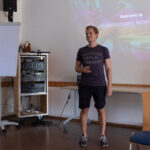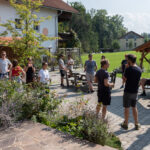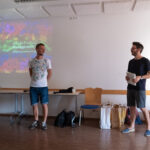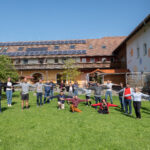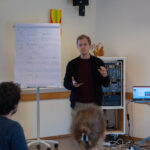In this exclusive interview, Matthias Hutterer, CTO of Jobiqo, provides profound insights into the future of job matching and discusses the crucial role of technology in this rapidly evolving field. Addressing the latest development of Public Employment Services in Austria on competency matching, he also critically examines this approach and supplements it with insights from recent innovations and years of research.
Interviewer: Matthias, the AMS recently announced a modernisation of their job placement through a so-called “competence matching.” How do you view this development?
Matthias Hutterer: Fundamentally, it’s an important step. AMS recognizes that focusing solely on job titles is not sufficient in today’s dynamic work environment. Considering competencies, interests, and skills is essential for more effective matchmaking between job seekers and companies.
Interviewer: Are there challenges with this pure skill-based matching approach?
Hutterer: Yes, certainly. One of the biggest challenges lies in the complexity and diversity of skills and the need to continuously update and interpret them. Technology must be flexible and adaptive to keep up with the constantly changing market demands.
Interviewer: How can Artificial Intelligence (AI) help overcome these limitations?
Hutterer: AI, particularly Generative AI and LLMs (Large Language Models like ChatGPT or BARD), offers the possibility to develop a deeper understanding of the nuances and complexity of job placement. It can help identify patterns and connections between various factors that may be missed by human intermediaries.
Interviewer: How does Jobiqo build on these technologies?
Hutterer: We are already able to use Artificial Intelligence and Generative AI to create a more comprehensive profile of each candidate. We consider not only their skills but also their career goals, interests, and cultural preferences. Especially the activities users perform on the platform give an implicit picture of their inclinations and can therefore be particularly helpful in generating job suggestions. All of this can help us go beyond traditional skill matching and offer a holistic and forward-looking placement service.
Interviewer: What role does bias detection play at Jobiqo?
Hutterer: Bias detection is a central element. We work closely with Johannes Kepler University Linz (JKU) and the Institute for Computational Intelligence to detect bias in data and optimise our algorithms to prevent bias in the results. Our goal is to create fair and inclusive job matching platforms that promote diversity and equal opportunities.
Interviewer: Finally, how do you see the future in the field of labour market placement, job boards, and matching?
Hutterer: The future lies in intelligent, adaptive, and comprehensive matching. AI and context data will play a crucial role in meeting the rapidly changing needs of the dynamic labour market. Our goal at Jobiqo is to be at the forefront of this innovation and make the job market more efficient, fairer, and more inclusive.
Matthias Hutterer is CTO at Jobiqo, a global technology company that has implemented over 200 job platforms as well as innovative solutions in the job market, matching, and programmatic advertising in the recruiting sector in 21 countries. Every year, more than 10 million applications are initiated worldwide via Jobiqo platforms, fostering connections between applicants and employers. Hutterer, who studied computer science and business informatics, has been a technology specialist in this field for over 18 years.
